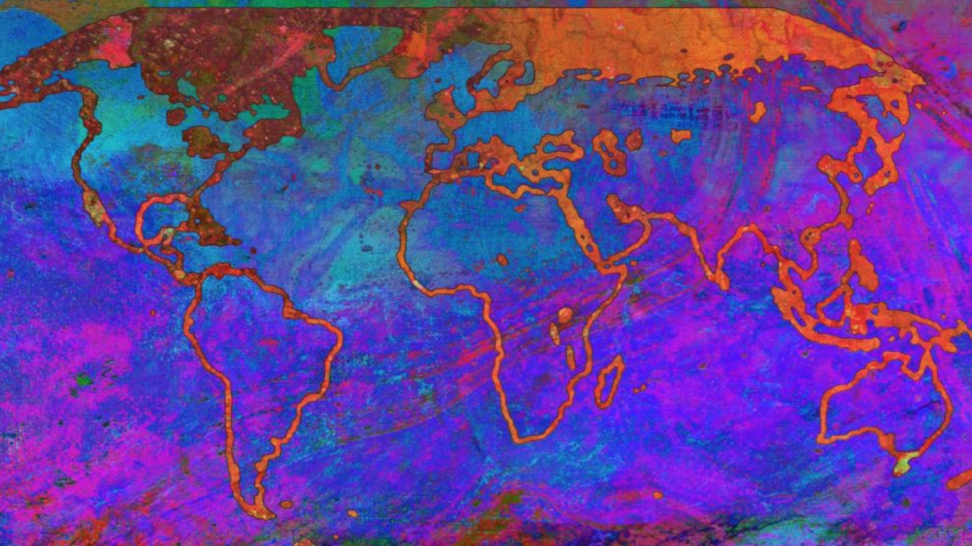
Submitted by Dr C.M. Martin-Jones on Tue, 28/09/2021 - 17:33
CAMBRIDGE -- the Cambridge Centre for Climate Science and Cambridge Zero today held a panel discussion on the recently published IPCC Working Group I report, Climate Change 2021: the Physical Science Basis.
The panel was chaired by Eric Wolff, Professor and ice core scientist at the Department of Earth Sciences, Cambridge, and one of the reviewers of the report. The audience heard short summaries of the different chapters from IPCC authors, and had a chance to join the debate in a follow-up Q&A session.
Introducing the panel, Wolff highlighted key messages from the report – which cites unequivocal evidence that human influence has warmed the atmosphere, ocean and land.
“The report provides new estimates of the chances of crossing the global warming level of 1.5°C in the next decades, and finds that unless there are immediate, rapid and large-scale reductions in greenhouse gas emissions, limiting warming to close to 1.5°C or even 2°C will be beyond reach…
The report shows that emissions of greenhouse gases from human activities are responsible for approximately 1.1°C of warming since 1850-1900, and finds that averaged over the next 20 years, global temperature is expected to reach or exceed 1.5°C of warming. This assessment is based on improved observational datasets to assess historical warming, as well progress in scientific understanding of the response of the climate system to human-caused greenhouse gas emissions.”—IPCC 2021
Nicholas Bellouin, who is from the University of Reading and authored Chapter 3: Human influence on the climate system, gave an outline of his work on the report. Bellouin discussed the evidence for changes in temperature, precipitation and climate extremes -- emphasising an improvement in climate forecasts using the latest generation of models, but highlighting the need for further work in simulating precipitation, carbon sinks and Atlantic and Pacific variability.
IPCC author Stephanie Henson, from the National Oceanography Centre, gave an outline on Chapter 5: Global carbon and other biogeochemical cycles and feedbacks. Henson spoke about her work to quantify trends and budgets in global CO2, looking specifically at some of the unknown feedbacks in the biosphere and how different carbon sinks would respond under different emission scenarios. Henson reviewed the evidence for ongoing ocean acidification and deoxygenation, before looking at some of the implications of CO2 removal schemes and solar radiation management.
Dan Lunt, based at the University of Bristol, outlined Chapter 7: The Earth’s energy budget, climate feedbacks and climate sensitivity, starting by highlighting their work to understand the global energy budget – with the aim of quantifying radiative forcing and feedbacks. The authors were particularly keen to quantify climate sensitivity, or the amount of global warming that will occur in response to a doubling of atmospheric CO2 concentrations. Lunt emphasised the importance of palaeoclimate records in these calculations, meaning that climate sensitivity could be constrained to the most confident range since the 1980s.
Lastly, Helene Hewitt from the Met Office spoke about Chapter 9: Ocean, cryosphere and sea level change, for which she was co-ordinating lead. Hewitt spoke briefly about the new developments since the 2013 AR5 report, with a greater focus on process and the integration of palaeoinformation, improved modelling and more detailed observations. Focussing on sea level, Hewitt reported that there have been unprecedented changes in parts of the ocean in recent decades, that it is virtually certain that sea level will continue to rise beyond the 21st century, and that deep, rapid cuts are needed to minimise sea level rise and the large loss of ice from the Antarctic ice sheet.
The authors unanimously cited the clear impact of climate change – “it is occurring everywhere, and everyone is affected. The warming is unprecedented in thousands of years…” said Lunt.
“…We are currently seeing increases in weather extremes, including heat waves, heavy rainfall and droughts. These changes will increase with further CO2 and warming. Keeping to 1.5oC will require rapid and wide-ranging cuts to emissions”.
CCfCS and Cambridge Zero have prepared a briefing report, drafted by scientists including Isobell Rowell, PhD student from Cambridge Earth Sciences, that summarizes the key messages from the recent report.
